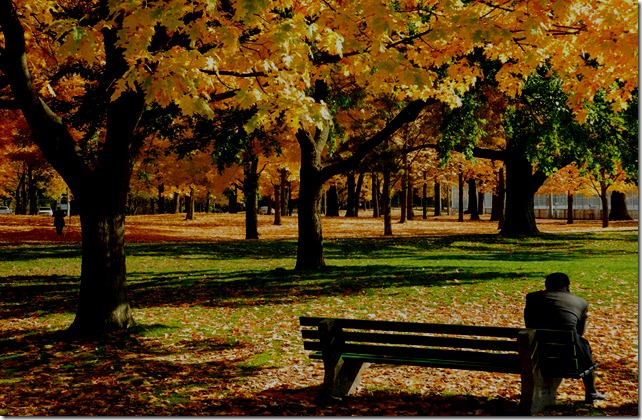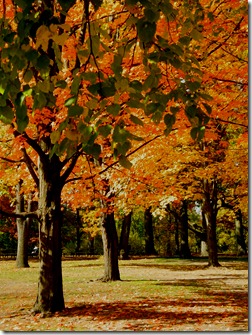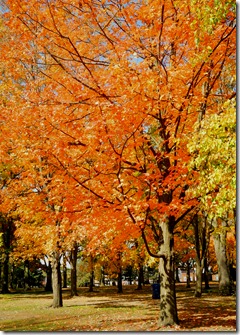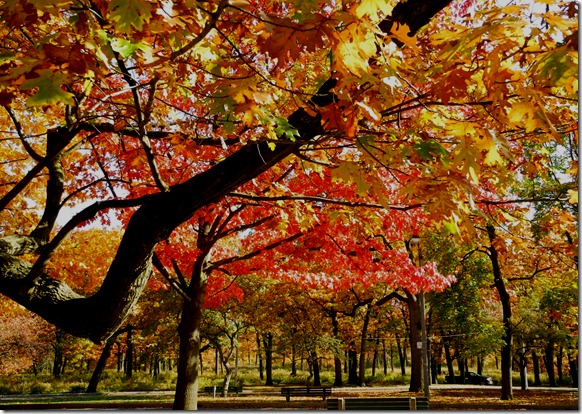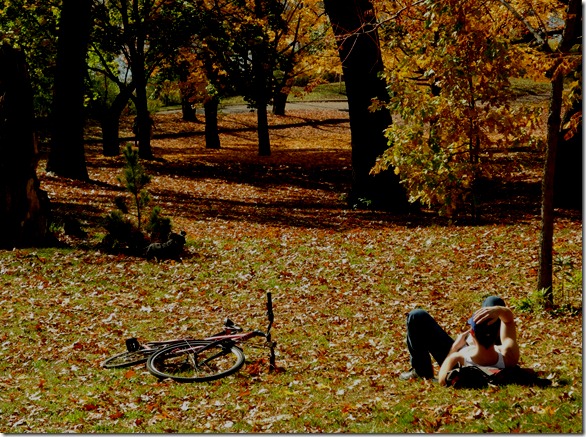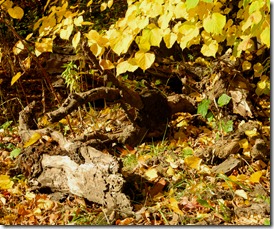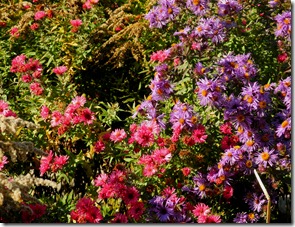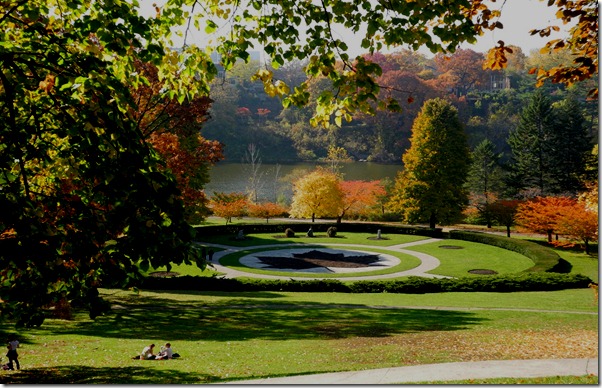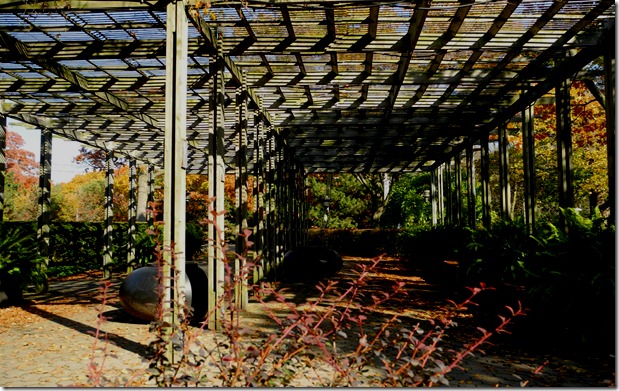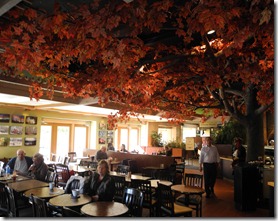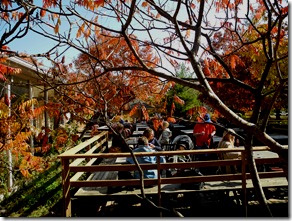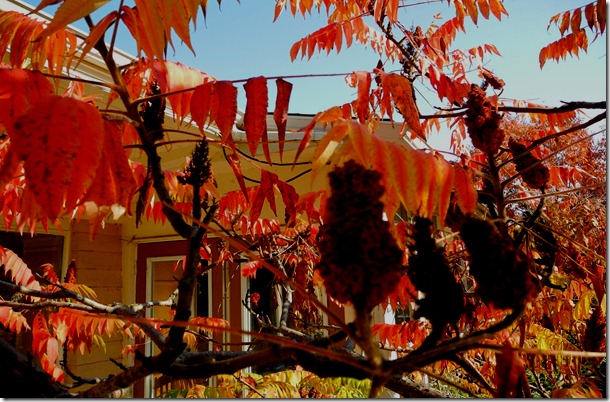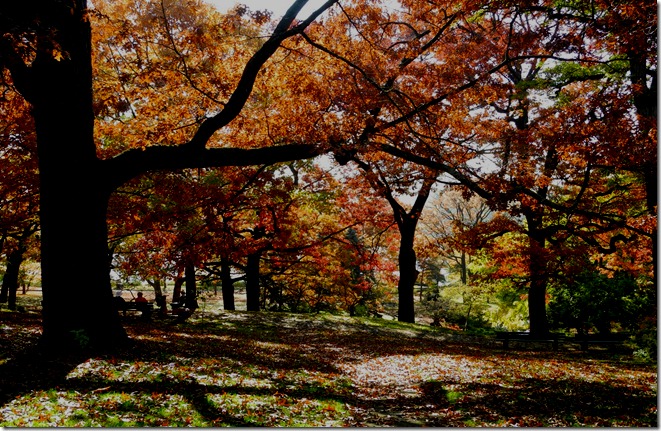High Park in the west end of Toronto contains 398 acres, the largest park fully within the boundaries of the city. A third of it is maintained in a natural state, with untouched woodlands and grassy hills with wild flowers. It also has formal gardens and a 35-acre pond, the size of a small lake – Grenadier Pond. There are two deep ravines that extend the full length of the park from south to north.
John G. Howard donated about a third of the land within the present-day park. It formed the central section, and stretched from the lake, as far north as Bloor Street. Howard originally purchased the land in 1836 for the grand sum of $1000. He named his estate High Park as it was the highest point of land along the shoreline. John G. Howard was a City Surveyor and an architect, as well as an amateur artist who painted in watercolours.
Howard deeded the land to the city in 1873, with the condition that he and his wife Jemima be allowed to live in their home, Colborne Lodge, until they had both passed away. They also insisted that the city agree to open the park to everyone in Toronto in perpetuity, and that no alcohol ever be served within the grounds. The city was also to provide a pension of $1200 a year to the Howards, in exchange for the land. This was a fair bit of money, as a domestic servant in the decade earned about $8 a month. The City Council agreed to the Howard’s terms by a vote of 32-2. The two dissenting votes were cast by councillors who felt that the land was too remote from the city to be useful to its citizens. In 1873, when the land was donated, the only access to the park was by boat, along the shores of Lake Ontario.
The city enlarged the park by purchasing land on the west side of Howard’s former estate from the Chapman Estate, the land having been originally owned by the Ellis Family. The land on the east side was bought from Percival Ridout.
A natural area of the park and wild asters in bloom
Slope looking west to toward the the Maple-Leaf Garden and Grenadier Pond
High Park’s hanging gardens, trimmed in preparation for the winter months ahead
The interior (left photo) and the outdoor cafe of the Grenadier Restaurant in High Park
Sumac bushes outside the Grenadier Restaurant
To View a post about Trinity Bellwoods Park:
https://tayloronhistory.com/2012/04/09/the-history-and-beauty-of-trinity-bellwood-park/
To view other posts about Toronto and its historic buildings:
Photos of the surroundings of the CN Tower and and the St. Lawrence Market in 1977
The old Dominion Bank Building at King and Yonge Street
The Canada Life Building on University and Queen Street West.
Campbell House at the corner of Queen Street West and University Avenue
A study of Osgoode Hall
https://tayloronhistory.com/2012/04/12/enjoying-torontos-architectural-gems-osgoode-hall/
Toronto’s first City Hall, now a part of the St. Lawrence Market
The St. Lawrence Hall on King Street
https://tayloronhistory.com/2012/04/28/enjoying-torontos-architectural-gems-the-st-lawrence-hall/
Toronto’s streetcars through the past decades
https://tayloronhistory.com/2012/03/26/memories-of-torontos-streetcars-of-yesteryear/
A history of Toronto’s famous ferry boats to the Toronto Islands
Toronto’s Old City Hall at Bay and Queen Streets
https://tayloronhistory.com/2012/04/22/enjoying-torontos-architectural-gems-old-city-hall/
To view the Home Page for this blog: https://tayloronhistory.com/
,
